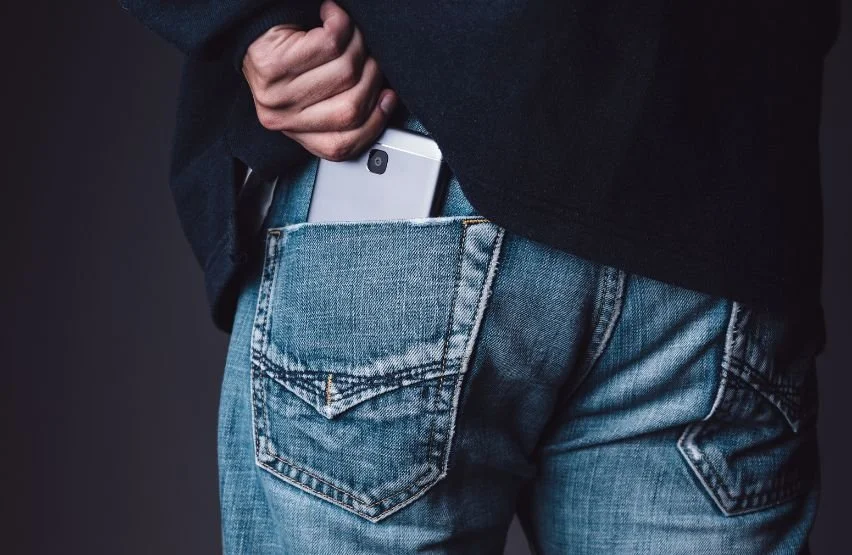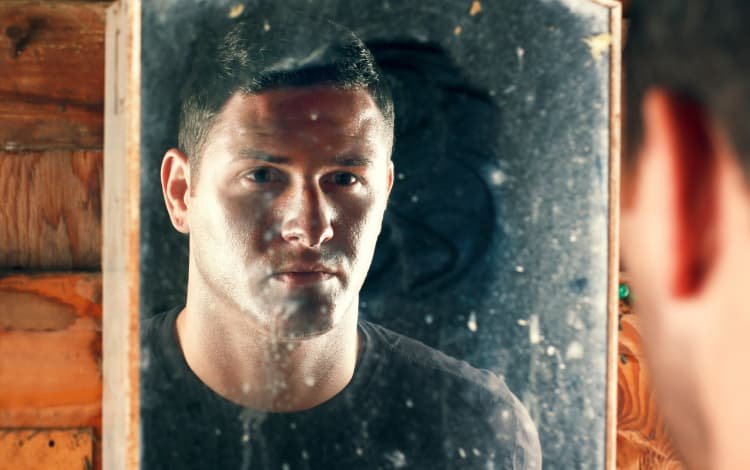Hooked on Connection: How Grindr’s AI is Rewiring Gay Intimacy
The notification lit up his phone mid-sentence as he was describing his latest breakup. Without thinking, he swiped over to Grindr, thumbed through three profiles, then looked back at me with genuine confusion. “I don’t even know why I just did that.”
I’ve watched this scene play out dozens of times — gay men so conditioned to seek digital validation that the gesture happens unconsciously, even in therapy sessions. Now, as Grindr evolves from hookup facilitator to AI-powered wingman, that unconscious reach for our phones carries new psychological weight.
Last year, Grindr began testing its AI “wingman” feature, targeting a base of 10,000 users by 2025 — an algorithmic assistant that recommends matches, crafts messages, and suggests conversation topics. According to CEO George Arison, “loneliness and depression are a really big problem for our community,” and this AI integration promises to improve connection.
But the timing reveals something deeper. This isn’t just a product update — it’s a technological response to emotional wounds that remain largely unhealed. For gay men whose digital spaces often serve as lifelines for identity and intimacy, allowing AI to mediate our most vulnerable communications represents uncharted psychological territory.
When Connection Becomes Compulsion
You know the pattern: checking Grindr during work meetings, scrolling while lying next to your partner, opening the app immediately after disappointing encounters as if the next swipe might heal the wound left by the last one.
This isn’t about poor impulse control or sex addiction. The app has become an emotional regulation tool — a way to manage feelings many of us never learned to sit with. When self-worth becomes hostage to digital attention — matches, messages, perceived desirability within algorithmic systems — each notification carries psychological weight that most straight people can’t fathom.
That tight chest when you open the app and see no new messages? The shallow breathing while waiting for someone to respond? The clenched jaw while scrolling through profiles of men who seem more confident, more attractive, more together than you feel? Your body is trying to tell you something about what’s really happening beneath the surface.
Research shows that 24% of lesbian, bi and gay relationships originate on dating apps like Grindr, which complicates our relationship with these platforms. They genuinely facilitate meaningful connections while simultaneously creating usage patterns that can undermine our emotional well-being. The same digital space that introduced you to your husband might be the one triggering your anxiety disorder.
Grindr’s 14.2 million monthly users spend an average of one hour daily on the platform — more time than most people spend exercising, reading, or having face-to-face conversations. What began as a simple grid of nearby guys has transformed into something resembling a digital nervous system for gay male community, complete with AI wingmen and telehealth services. For many of us, it’s become infrastructure rather than option.
The AI Intimacy Experiment
When Grindr’s AI starts writing your messages, something fundamental shifts in how intimacy develops. You’re no longer just curating your photos and bio — you’re outsourcing the early stages of romantic communication to an algorithm designed to maximize engagement, not genuine connection.
The psychological implications cut deeper than concerns about “authentic” communication. Those of us who spent childhoods learning to curate our self-presentation for safety now face AI systems that promise to optimize our romantic personas. The same hypervigilance that once protected us from physical danger gets redirected toward algorithmic approval — a digital vigilance that never switches off.
I think about the client who described using ChatGPT to analyze his conversation patterns, trying to understand why matches stopped responding. “I’m treating romance like a debugging problem,” he told me. “But I’m the bug that needs fixing.” The AI’s “helpful” insights had convinced him that his natural communication style was the barrier to connection.
The AI wingman’s ability to provide “chat summaries” that surface “meaningful past connections and high-potential matches” transforms dating into data optimization. Romantic chemistry becomes metrics to be improved rather than feelings to be experienced. When you’re already struggling with emotional intimacy, this technological buffer can become another layer of protection against genuine vulnerability.
The Medicalization of Desire
Grindr’s launch of Woodwork — a telehealth service offering erectile dysfunction medication — completes a strange circle. More than a third of Grindr’s users take erectile dysfunction medication. Now, the very platform that can trigger performance anxiety through its culture of constant comparison and rejection is selling pharmaceutical.
There’s something psychologically complex about getting your ED medication from the same app that makes you feel inadequate about your body, your desirability, your sexual performance. The platform creates the pressure, then sells the remedy. It’s brilliant business; it’s complicated psychology.
For many gay men, sexual performance issues carry additional layers of shame around masculinity, desirability, and worth that have nothing to do with blood flow. When the convenience of app-based healthcare bypasses the emotional exploration that might address underlying causes, we risk treating symptoms while the deeper wounds remain untouched.
Privacy as Emotional Safety
The UK lawsuit alleging that Grindr shared users’ HIV status and personal information carries psychological weight beyond data protection. For gay men, privacy violations trigger historical fears of exposure, discrimination, and safety that run deeper than most people realize.
When AI systems analyze your most intimate conversations and preferences, the anxiety isn’t just about data security — it’s about being known in ways you didn’t consent to. Your vulnerability becomes corporate intelligence. Your desires become profit centers. Your private moments become training data for algorithms designed to keep you scrolling.
You feel it in your gut when you consider how much these platforms know about your patterns, preferences, and psychological triggers. That unsettled feeling isn’t paranoia; it’s intuition recognizing that your emotional well-being has become secondary to engagement metrics.
What’s Really Happening Beneath the Apps
The endless download-delete cycle isn’t personal failure — it’s a normal response to platforms designed to maximize engagement through psychological techniques that mirror addiction pathways. Grindr’s revenue increased 33% last year to $345 million, demonstrating the financial success of keeping you hooked.
But understanding the business model doesn’t diminish the emotional impact. When you find yourself compulsively checking for new matches, using the app to avoid difficult feelings, or maintaining multiple digital personas across different platforms, you’re not experiencing weakness — you’re responding predictably to systems designed to exploit psychological vulnerabilities.
The therapeutic question isn’t whether you should delete all dating apps. It’s about recognizing when your digital connection-seeking becomes emotional avoidance. Many of us use apps to manage loneliness, rejection sensitivity, or boredom without addressing the underlying emotional needs. The endless scroll becomes a numbing mechanism disguised as social activity.
The Deeper Patterns
Your relationship with dating apps reflects deeper attachment patterns that often began long before you downloaded your first dating app. If you experienced anxious attachment in childhood, you might compulsively check for new matches, feeling your worth fluctuate with each notification. If you learned to avoid emotional vulnerability, you might browse endless profiles to avoid committing to deeper connection with anyone.
The way you present yourself across platforms — “masc” on Grindr, sensitive on Instagram, professional on LinkedIn — reveals something about identity fragmentation that many gay men carry. When you’re performing different versions of yourself across digital spaces, it becomes harder to know who you actually are when the screens go dark.
One client described it perfectly: “I’m like a different person on every app. I don’t know which one is really me anymore.” That fragmentation isn’t unique to him — it’s epidemic among gay men who learned early that different environments required different versions of themselves.
The emotional regulation patterns that show up in app usage often mirror how you handle difficult feelings in other areas of life. Do you reach for your phone when you’re bored, anxious, or lonely? Does swiping through profiles help you avoid feelings you don’t want to sit with? These patterns reveal information about your emotional coping strategies that extends far beyond dating.
The Integration Challenge
The integration of AI into intimate communication will only accelerate. Soon, algorithms will craft not just your opening messages but entire conversation flows, optimized for whatever outcome the platform decides is “successful.” The question isn’t whether this technology will reshape how gay men connect — it’s whether we’ll develop the emotional intelligence to navigate these changes while maintaining authentic connection with ourselves and others.
This kind of deep pattern recognition and emotional integration rarely happens through willpower alone. The ingrained attachment responses and regulation strategies that manifest through app usage typically require the kind of sustained, compassionate exploration that therapeutic work provides. Understanding why you use apps the way you do, recognizing when you’re seeking connection versus avoiding feelings, and developing internal resources for managing difficult emotions — this work transforms digital platforms from masters into tools.
One client once reflected: “I want to use the app instead of letting it use me.” That shift from passive consumption to conscious choice — from digital drift to intentional connection — represents the territory we’re called to explore.
As you close your apps today, pause and gently ask: Does your digital intimacy come from genuine connection or emotional avoidance? Notice how your chest, stomach, or shoulders respond as you ask this question with curiosity rather than judgment. The answers that emerge in that quiet moment often reveal where the real work begins.
For gay men struggling with digital dating patterns or seeking support around technology’s impact on relationships and mental health, working with an LGBTQ+-affirmative therapist can help you develop healthier connection practices.
👉🏻 To begin your journey toward healthier digital relationships, schedule a session to explore these patterns in a safe and supportive environment.





